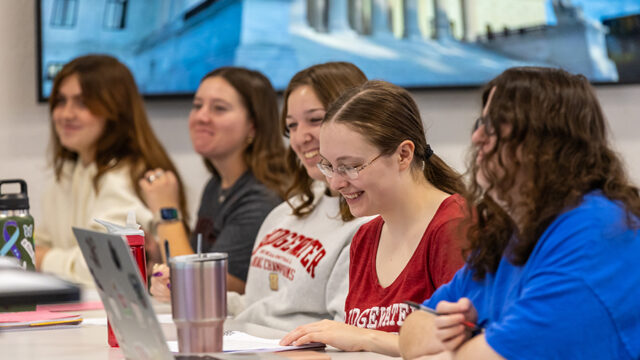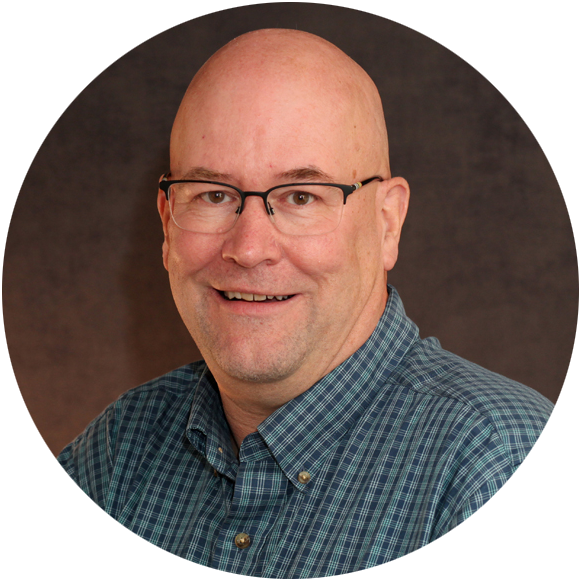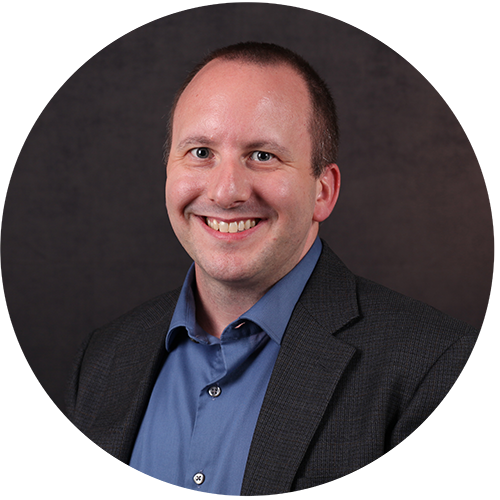Get Ahead: Experience Your Future Today
Bridgewater’s Future Scholars Institute is a grant-funded, two-week residential program that allows local rising high school juniors and seniors to experience college life firsthand by living and studying on campus. The centerpiece of the program is a discussion-based college seminar class entitled “Individual Freedom and the Public Good.” Throughout the program, participants will carefully and critically read complex materials, engage in discussions and debates, and present their ideas through writing and classroom discussions. The Future Scholars Institute is part of the Teagle Foundation’s Knowledge for Freedom program.
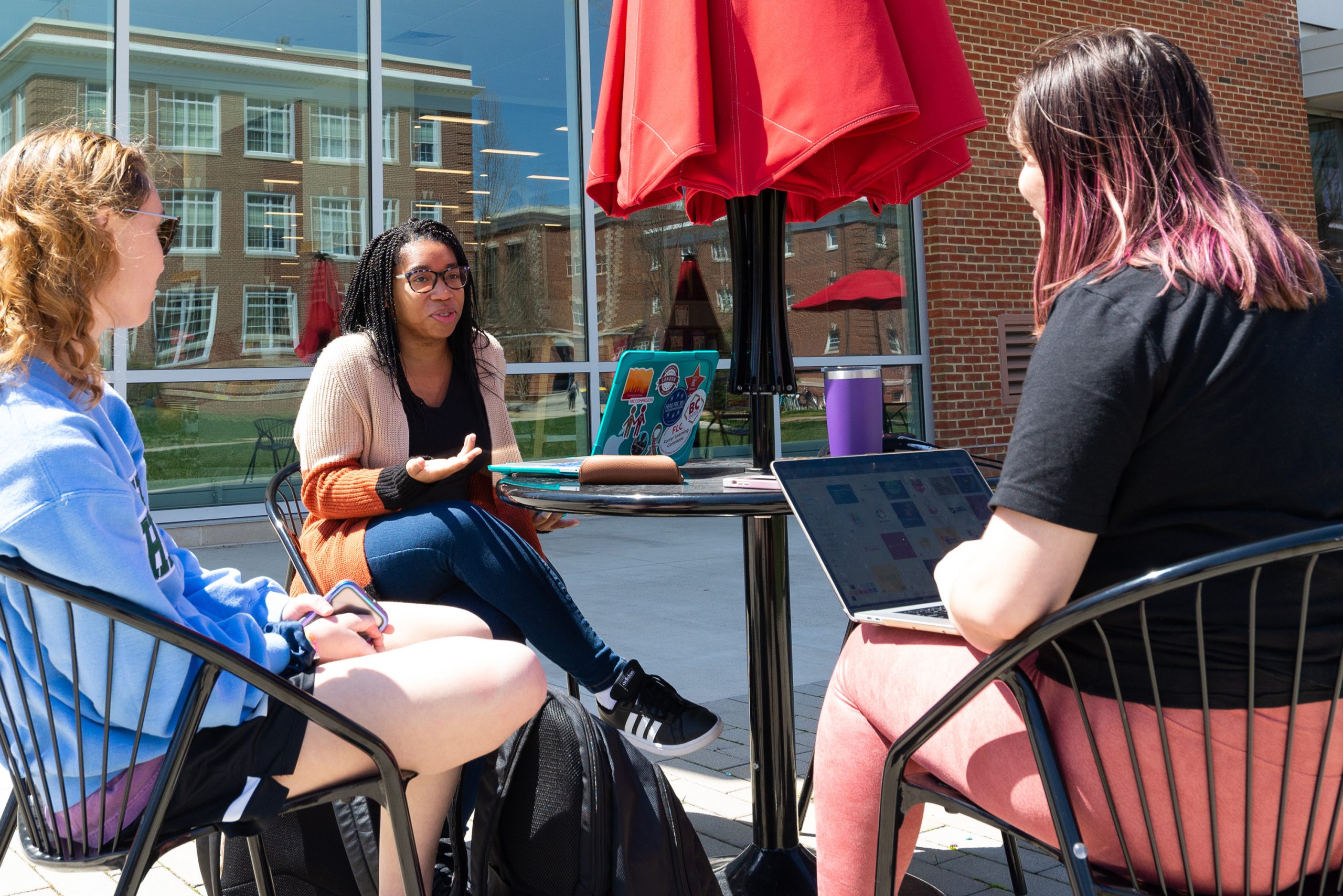
About the Program
The program is sponsored by a grant from the Teagle Foundation and is offered free of charge (including program costs, room and board, field trips, supplies and materials) to participating students. Upon successful completion, each student will receive two college credits and letter of recommendation from a Bridgewater College faculty member. Admissions preference will be given to students who would benefit from additional support in understanding the American college experience, such as first-generation and low-income students.
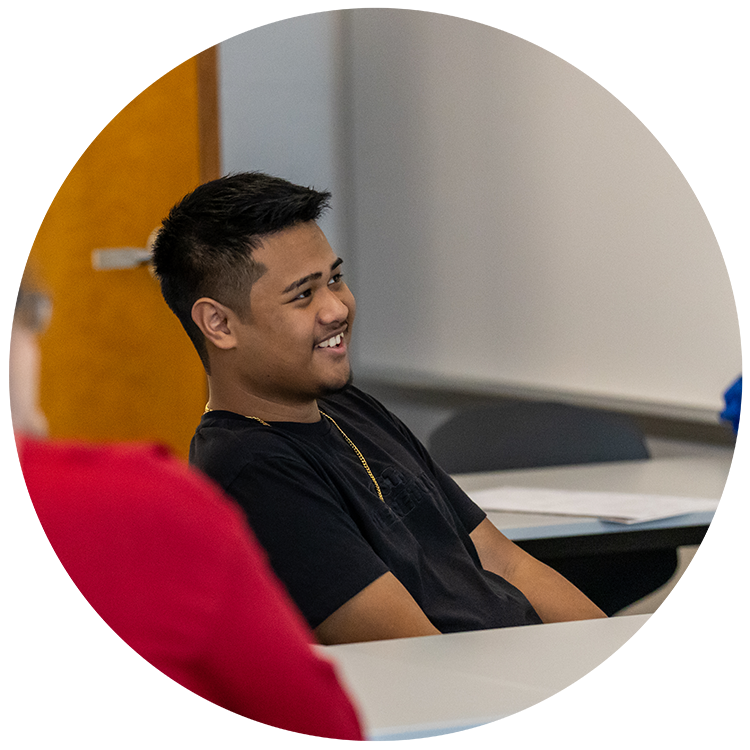
Seminar Dates: July 13-26, 2025
Start your application today.
Application priority deadline: Feb. 15, 2025
Second rolling deadline to fill open spots until March 30, 2025
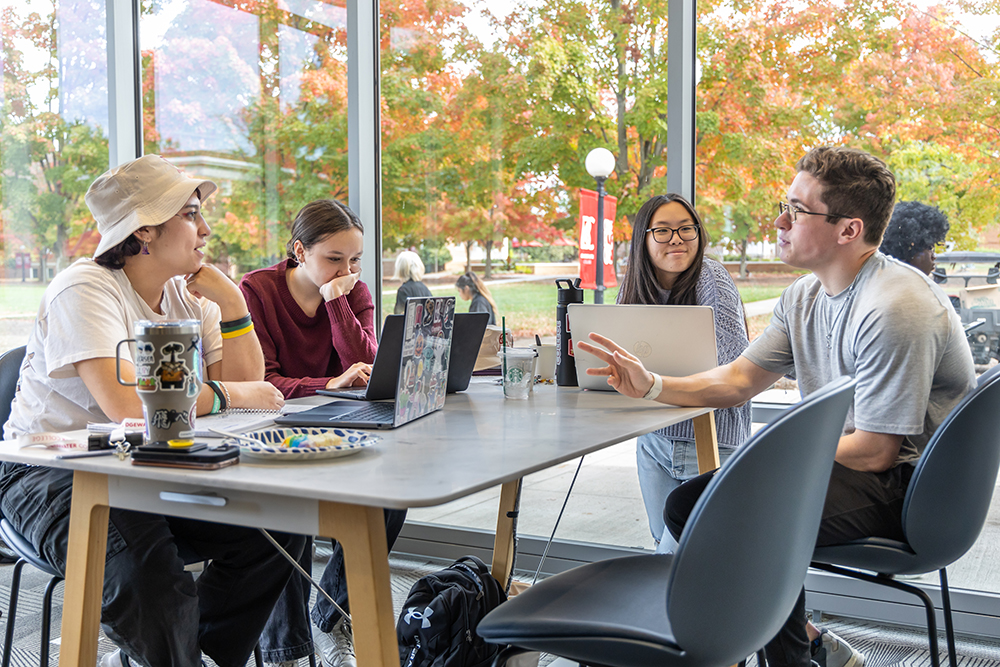
Benefits of the Program
- Early College Experience: Provides rising high school juniors and seniors with a two-week residential program that simulates the college experience, including living and learning on campus.
- Engaging Curriculum: Features a humanities-based seminar, “Individual Freedom and the Public Good,” where students critically read complex materials, engage in discussions and debates, and develop writing and analytical skills.
- Cost-Free Experience: Benefit from a fully-funded program, including free tuition, housing, meals, instructional materials, and field trip expenses.
- College Readiness: Helps participants prepare for college applications and success through workshops on admissions and financial aid, while also earning two college credits.
FAQs
General Questions
The program is open to rising high school juniors and seniors from Augusta, Page, and Rockingham Counties, the cities of Harrisonburg, Waynesboro, Staunton, and neighboring Pendleton County, WV. Students from underserved or underrepresented backgrounds are particularly encouraged to apply.
Yes, the program is free for all selected participants. It includes housing, meals, instructional materials, college course tuition, and field trips. We are able to offer the program free of charge to participants thanks to the generous support of the Teagle Foundation. The program is part of the Teagle Foundation’s Knowledge for Freedom program.
We will accept up to 30 students for this program each summer.
Program Content and Curriculum
The centerpiece of the program is a small, discussion based, college seminar class. Participants will engage with the instructor and each other in exploring the relationship between individual freedom and the public good. The curriculum includes critical readings of texts from the ancient world to contemporary issues, class discussions, debates, and research-based writing assignments.
Yes, students who successfully complete the program will earn two college credits on a pass/fail basis.
Participants will need to complete daily assignments, including written reflections, short videos, and two significant research papers. No prerequisites are required.
Application and Recruitment
Applications will be available through the Bridgewater College website starting in early 2025. Students will need to submit basic information, details about their high school experience, and a statement of interest.
The application deadline will be announced in early 2025. Selected participants will be notified by late spring. Priority Deadline is February 15, with a second rolling deadline to fill open spots until March 30.
Applicants with strong potential for academic and personal growth, particularly those who may need support in navigating the college process, will be given preference. The program aims to support students from low-income families, first-generation college applicants, and students from underrepresented minority groups.
Residential Life
All meals are catered by BC’s dining services, with accommodations for dietary restrictions. Some additional meals will be provided while on field trips. Students will also have access to campus facilities, including the library, wellness center, and WiFi. In addition, snack break will be provided most days
We will provide one set of sheets for the Twin XL beds that are provided on campus.
Here’s a checklist to help you pack for your time at the Future Scholars Institute:
Clothing
- Comfortable, casual clothing for classes and activities (e.g., T-shirts, jeans, shorts).
- Business casual attire for special events, such as the closing luncheon.
- Athletic wear for recreational activities and gym access.
- Comfortable shoes for walking, including sneakers for field trips and activities.
- Sleepwear and undergarments.
- A light jacket or sweater for cooler evenings.
Bedding and Toiletries
- Twin XL bedding (sheets, blanket, pillow). Note: one set of sheets will also be provided
- Towels and washcloths.
- Personal toiletries (soap, shampoo, toothbrush, toothpaste, etc.).
- Shower shoes.
Academic Supplies
- A laptop or tablet if you have one (a limited number will be available for use if needed).
- Notebooks, pens, and pencils.
- A backpack or bag for carrying books and supplies.
Other Essentials
- A reusable water bottle
- Sunscreen and any personal medications.
- Photo ID for field trips.
- Any required documents or forms (e.g., permission slips, health forms).
Optional Items
- Small personal items to make your room feel like home (e.g., photos, a small lamp).
- Snacks for your room (storage containers are recommended).
- A journal for personal reflections.
- Cash or a card for incidental expenses. (You should not have many, but might want to make a purchase on a field trip.)
Important Reminder: Avoid bringing valuable or irreplaceable items. The Institute provides most necessities, and you’ll have access to campus resources for anything you may forget. If you have specific needs or concerns, feel free to reach out to the program staff before arrival.
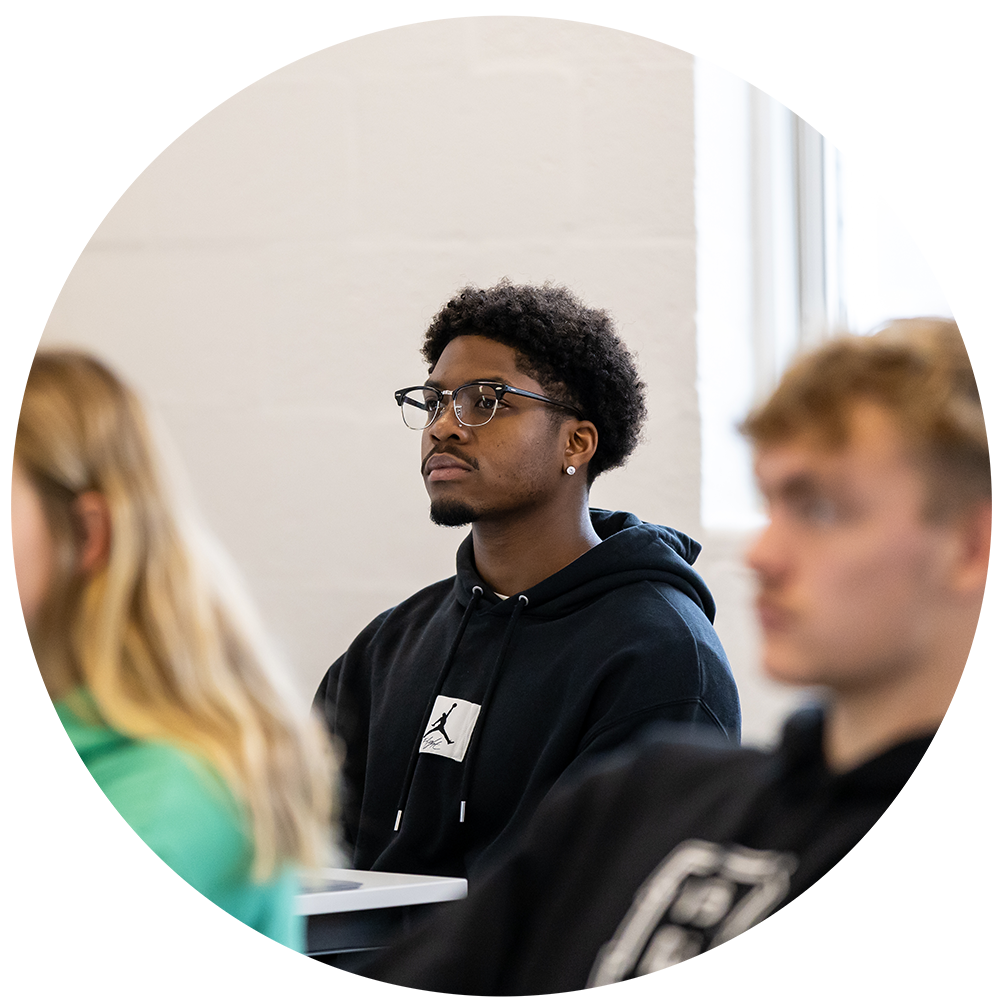
Seminar Topic
By engaging with course materials, students will gain a deeper understanding of the interplay between individual freedoms and the collective good, learning to critically evaluate democracy’s strengths and challenges in a modern context.
COURSE TITLE: IDS 105 “Individual Freedom & The Public Good” (2 Credits)
COURSE CATALOG DESCRIPTION:
IDS-105: This two-week summer course is an interdisciplinary, humanities-based seminar designed to explore profound questions about freedom, democracy, and government. High school students participating in the Knowledge of Freedom Program will delve into civic concepts from the ancient world and connect them to contemporary issues. This program offers students the change to experience college life firsthand by living and studying on campus. Participants will carefully and critically read complex materials throughout the seminar, engage in discussions and debates, and present their ideas through writing and classroom discussions. This course is graded Pass/Fail.
Additional information:
The Knowledge for Freedom: Freedom, Democracy & Government seminar explores the theme “Individual Freedom and the Public Good” through a wide range of humanities-based topics, readings, and discussions. Below is an overview of key areas and materials covered during the program.
Core Topics
1. Ethical Perspectives on Freedom and Justice
- Close readings of John Stuart Mill’s “On Liberty” and John Rawls’ “A Theory of Justice” to examine the balance between individual liberty and societal equality.
- Exploration of ethical frameworks like utilitarianism, deontology, and relativism.
2. Foundations of Democracy and Government
- Key texts include John Locke’s “Two Treatises of Government,” Rousseau’s “Social Contract,” and the U.S. Constitution.
- Discussions on natural rights, the purpose of government, and the philosophical underpinnings of democratic systems.
3. Civic Engagement and Social Capital
- Comparative analysis of de Tocqueville’s “Democracy in America” and Robert Putnam’s “Bowling Alone” to explore the decline of civic participation.
4. Free Speech and Protest in Democracy
- Examination of the First Amendment through landmark Supreme Court cases like Brandenburg v. Ohio and National Socialist Party v. Skokie.
- Analysis of Martin Luther King Jr.’s “Letter from Birmingham Jail” and case studies like the Charlottesville rally.
5. Control of Information and Book Banning
- Discussions on the intersection of censorship, education, and democracy through cases like Tinker v. Des Moines and recent book-banning controversies.
6. Global Perspectives on Freedom and Democracy
- Isabel Allende’s “A Long Petal of the Sea” provides historical insights into the Spanish Civil War and Chilean democracy.
7. Media and Democracy in the Digital Age
- Consideration of government regulation, freedom of the press, and the challenges posed by social media platforms.
8. Peaceful Transfer of Power
- Readings from the Federalist Papers, Washington’s Farewell Address, and historical case studies of U.S. presidential transitions.
Group Discussions and Debates: Collaborate with peers to explore diverse perspectives on contemporary and historical issues. Engage in debates and discussions that strengthen public speaking and argumentation skills.
College Readiness Workshops: Attend sessions on navigating the college application process, financial aid, and personal statement writing. Gain insights into the transition from high school to college life.
Civic Engagement Activities: Explore ethical dilemmas through case studies and role-playing scenarios. Discuss strategies for applying civic knowledge to real-world challenges.
Field Trips: Visits to Washington, D.C., including the National Museum of African American History & Culture and the Holocaust Memorial Museum, to connect historical and contemporary struggles for freedom.
Social and Recreational Events: Participate in campus activities, games, and social events to build community and relax. Explore the campus environment through guided tours and activities.
Ready to learn more? Contact us!
For questions about the program or application process, contact the program co-directors.
